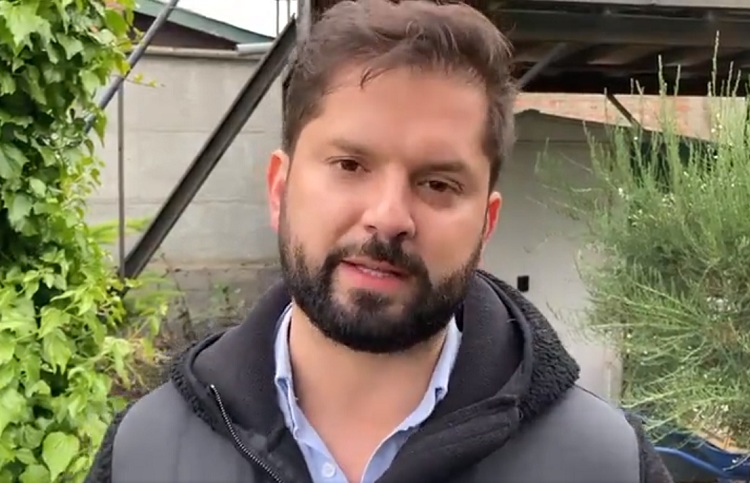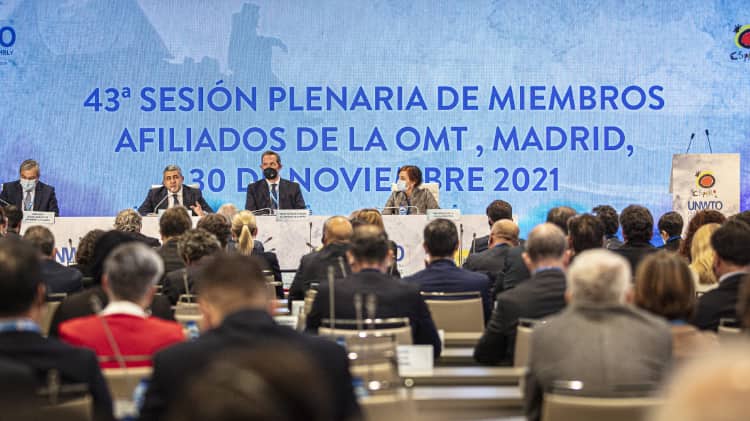Marta Martínez
Gabriel Boric, who will take office as president of Chile in March, will have to moderate expectations of solutions to the country’s problems, according to a webinar organised by the Chile-Spain Foundation and Llorente y Cuenca, in collaboration with the Pontificia Universidad Católica de Chile.
Taking part in the debate, held on Tuesday, were Exequiel Silva, managing partner of the legislative consultancy Rizoma and former Chilean MP for the Christian Democrat Party; Cecilia Cifuentes, economist at the Pontificia Universidad; and Jorge Sahd, director of the Centre for International Studies at the same university.
Throughout the interventions, it was pointed out that the demand for a better quality of life is increasingly high among the Chilean population living in sensitive and uncertain economic conditions.
According to Cecilia Cifuentes, after the elections, times have become tremendously challenging and these challenges are much more focused on the political field than on the economic field, although in both, the scenario is uncertain. Cifuentes praised the appointment of Mario Marcel as finance minister, noting that this will shift the balance of power towards the centre.
The most important uncertainty, he added, comes from the constitutional discussion, something on which Jorge Sahd also agreed, and that is because it will establish Chile’s long-term rules.
Cifuentes insisted that the government should moderate expectations regarding the solution of problems in the country because, although they are not impossible to solve, they are extremely complicated and involve long-term solution processes.
Cifuentes considers that inflation in Chile cannot be solved with a simple redistribution of resources and believes that it is necessary and fundamental to recover the country’s growth, in order to solve the underlying problems such as inequality, political polarisation and labour informality. He indicated that in the low-income sectors, in the poorest 10%, less than 10% of people of working age have a formal job.
Exequiel Silva, for his part, said that the students who took to the streets in demonstrations in 2011 are the same ones who have won the elections today.
He recalled that, after the elections, the seats in the Chamber of Deputies have remained practically the same, with the left maintaining its representation. However, the coalition of the president-elect, Gabriel Boric, has no chance of building a majority, which is necessary to carry out the transformations he proclaimed in his campaign.
The change Boric wants to bring about in Chile, according to Jorge Sahd, is to make the country a role model for its neighbours in terms of stability, growth and democracy. Unfortunately, he noted with regret, in Latin America democracy is losing popularity and the population is willing to have a non-democratic regime in order to achieve stability.
He indicated that Boric’s government will have to deal with problems such as water stress, social protests and violence, the migration crisis – in which Chile is the third largest recipient of immigration in Latin America – and foreign investment.
According to Sahd, foreign investment in Chile is totally absent from the political discourse, and this must change. He also highlighted the rise of China, Chile’s main trading partner, and its growing investment in strategic sectors such as energy and metals. He pointed out that the government will have to combine China’s growing presence and its rivalry with the United States, which is Chile’s second largest trading partner.
Sahd agreed with Cifuentes and Silva that 2022 is going to be a complex year in Latin America and Chile is not going to be unaffected by this. According to Silva, Boric has shown a capacity for agreement and dialogue and should use this to give consistency to his foreign policy.






